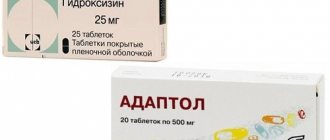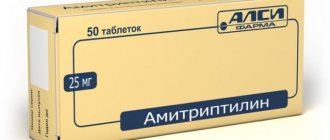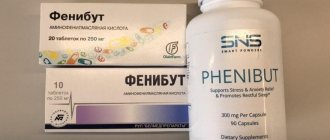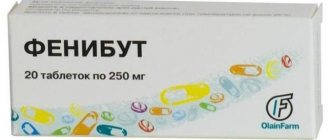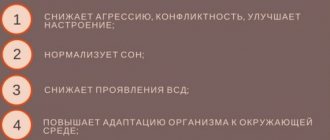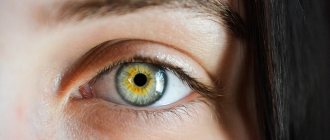Update date: 01/11/2021 15:54:46 1646 Share:
Author: Maria Feldshtein
According to medical statistics, about 4% of the world's population suffers from anxiety disorders. Interestingly, in Europe and North America this condition occurs more often - on average in 7.7% of people, while in Asia - only in 2.8%.
In the treatment of such disorders, drugs of various pharmacological groups are used - in particular, anxiolytics and nootropics. Representatives of these categories of drugs include Afobazole and Phenibut. The drugs differ in composition and mechanism of action, but are prescribed in similar situations. What is the difference between them - read the article.
| The drug and its characteristics | Phenibut | Afobazole |
| Pharmacological group | Nootropic drugs | Anxiolytics - anti-anxiety drugs |
| Active substance | γ-amino-β-phenylbutyric acid hydrochloride | Fabomotizole hydrochloride |
| Release form | Pills | Pills |
| Manufacturer | “Ozone”, “Organika”, etc. (Russia) | OTCPharm (Russia) |
| Price | 60-250 rub. | 300-400 rub. |
| Vacation at the pharmacy | On prescription | Over the counter |
Indications for use
Afobazole and Phenibut have one common indication - the treatment of anxiety disorders. These drugs calm the nervous system, relieve anxiety and fear, and improve the quality of life.
Other indications for prescribing drugs vary
Afobazole
Afobazole is used for certain somatic diseases accompanied by anxiety - for example, VSD, irritable bowel syndrome, bronchial asthma and hypertension. The drug normalizes brain activity, helps lower blood pressure and stabilizes heart rate. Afobazole is prescribed only in combination with other drugs and is not the only drug in this situation - it relieves accompanying symptoms, but does not treat the underlying disease.
Afobazole is also prescribed in the following situations:
- premenstrual syndrome;
- alcohol withdrawal;
- relief of withdrawal symptoms when quitting smoking;
- sleep disturbances caused by anxiety;
- adaptation disorders.
Phenibut
Phenibut is used in more complex cases:
- obsessive-compulsive neurosis;
- insomnia and nightmares;
- enuresis, stuttering and nervous tics in children;
- Meniere's disease;
- open-angle glaucoma;
- symptomatic therapy in the treatment of alcohol dependence.
Phenibut is also prescribed as a premedication before surgical operations and diagnostic procedures.
Online magazine about choosing the best goods and services
16.07.2019 16:07:47
Expert: Boris Kaganovich
For various nervous disorders, Phenibut and Afobazole can be prescribed. It’s worth noting right away that they are not analogues, so they have many differences. We looked at their advantages and disadvantages to find out which remedy is best suited for which disorders.
| A drug | Advantages | Flaws |
| Phenibut | + Positive effect on the blood vessels of the brain and the nervous system+ Rapid onset of effect+ Does not cause depression of the central nervous system+ Does not provoke the development of allergies+ Low toxic+ Few contraindications+ Can be prescribed from 8 years | – Not prescribed for diseases of the gastrointestinal tract; – You cannot operate transport or complex machinery during treatment. |
| Afobazole | + Wide range of application+ Does not cause drowsiness+ Does not affect the reaction rate+ Does not lead to withdrawal syndrome+ The result of treatment is visible within 5-7 days from the start of taking the drug+ Dispensed without a doctor’s prescription+ Side effects are unlikely, the list of them is small - allergies and headache + Few contraindications | – Not used in pediatrics, contraindicated for use under 18 years of age – Cannot be prescribed during pregnancy – May cause allergic reactions – Overdose leads to sedation |
The nootropic and psychostimulant drug Phenibut contains the same component in its composition. Manufacturer: Obninsk CFC for Rick-Pharma in the Russian Federation. Available in tablets.
Its dominant actions are antiamnestic and antihypoxic, which allows Phenibut to be used for cognitive impairment, disorders of the vestibular system and for the prevention of the consequences of head injuries.
Additional actions - anxiolytic, antiplatelet, psychostimulant. The drug reduces the manifestations of asthenia, normalizes sleep, eliminates increased irritability and lability. It also helps improve mental and physical performance.
Phenibut is used for memory and attention disorders, to increase initiative and interest. Already from the first days of treatment, it improves the objective well-being of patients with asthenia.
Research and effectiveness
Nootropic drugs have no FDA-approved indications. There is no objective evidence of their effectiveness. Since 1997, only 2 clinical trials of the drug have been conducted. None of the listed indications for use have the specified degree of evidence.
Side symptoms
Side effects during Phenibut therapy may include:
- nausea - often occurs at the beginning of therapy;
- hepatotoxicity – with long-term use in high doses;
- emotional lability, insomnia - observed more often in children.
- If other side symptoms appear, you should talk to your doctor.
Dosage
Phenibut is taken before meals. For asthenia and anxiety, adults drink 250-500 mg 3 times a day. From 8 years - 250 mg 3 times, after 14 years adult doses are used. The maximum dosage is 750 mg, in old age – 500 mg.
An increased dose of 750 mg is used for exacerbation of Meniere's disease, for a one-time elimination of dizziness and vestibular disorders. To prevent motion sickness, use 250 mg 3 times a day.
The duration of treatment varies depending on the disease. The drug can be used for a long course - 4-6 weeks or more.
Phenibut is a low-toxic drug, so an overdose is unlikely. The drug will be hepatotoxic when consumed 7-14 g of the drug per day. Then there may be liver dystrophy and eosinophilia develops. Possible symptoms of overdose are hypotension, nausea, vomiting. There is a risk of kidney failure.
Who is it suitable for?
The medicine Phenibut can be prescribed by a doctor for:
- memory and attention disorders;
- insomnia and other sleep disorders;
- decreased emotional activity;
- tics, urinary incontinence, stuttering;
- Mainer's disease;
- dysfunctions of the vestibular apparatus.
The drug is also used in the complex treatment of alcoholism, when it is necessary to relieve somatovegetative and psychopathological disorders that accompany abstinence.
Description of Afobazole
Afobazole is a tranquilizer based on fabomotizole. Available in tablets. The manufacturing company is Pharmstandard-Leksredstva in the Russian Federation. Can be purchased without a prescription.
The drug gives a psychostimulating effect. The mechanism of action is based on a combination of anti-anxiety and stimulating effects. Reduces anxiety, increased irritability, somatic symptoms of anxiety. Helps with cognitive impairment, stress, and depressed mood. It is especially effective when used for asthenic features.
The effect from the moment the drug is prescribed develops within a week. A lasting result is observed by the end of the month of therapy and lasts for another 14 days. The advantages of the drug are that it does not cause muscle weakness and does not lead to withdrawal symptoms.
To whom is it assigned?
For adults, the drug is prescribed for anxiety conditions and neurasthenia. Can be prescribed for somatic diseases - asthma, IBS, ischemic heart disease, hypertension, arrhythmia, oncological pathologies.
Afobazole can be included in complex treatment for sleep disorders, neurocirculatory dystonia, and abstinence. The product helps to relieve symptoms of PMS and withdrawal symptoms when quitting smoking.
Cost and analogues
| Means | Price | Analogs |
| Phenibut | 250 mg No. 20 – from 80 rubles | Noobut |
| Afobazole | 10 mg No. 60 – from 350 rubles | Substitutes: Adaptol Mebicar |
Which drug is better
Phenibut and Afobazol are produced in Russia, have the same release form, and have some similar therapeutic effects - they help with anxiety disorders. They can be prescribed for the same pathologies, but are not interchangeable.
Phenibut acts more quickly, but has more side effects, can cause withdrawal syndrome, and has a bad effect on the gastrointestinal mucosa. This is a stronger drug that is prescribed for serious disorders. Afobazole is inferior in that it cannot be used before the age of 18.
Afobazole and Phenibut should not be used for self-medication. The use of funds must be justified, so you should first consult your doctor.
What is the difference between Phenibut and Afobazole?
Afobazole is a mild tranquilizer that also has an activating and neuroprotective effect.
The drug contains the substance Fabomotizol, which restores nerve cell receptors, helping the nervous system to work even under prolonged conditions.
nervous tension.
Afobazole eliminates anxiety disorders of various origins, irritability, fear, panic attacks, helps cope with
prolonged stress.
The drug is well tolerated and does not cause drowsiness, dependence or addiction, and has a long-lasting effect that manifests itself even after discontinuation of the drug.
It should be noted that the drug does not interact with ethanol and can be used in complex treatment with other sedatives and anti-anxiety drugs (however, when combining different drugs, you should still consult your doctor).
Phenibut contains aminophenylbutyric acid and is classified as a nootropic and anti-anxiety drug. That is, the drug not only has a calming effect, but also improves the functional state of the brain
due to the normalization of tissue metabolism and the effect on cerebral circulation.
Please note that Phenibut may cause discomfort if discontinued abruptly.
the drug, therefore stop its use gradually.
Phenibut should also be used with caution in those patients who have problems with the gastrointestinal tract, because this drug has an irritating effect on the
mucous membranes.
Therefore, if any discomfort in the stomach or other side effects occurs, you should discontinue the drug or immediately
Consult your doctor as this is a prescription drug.
Is it possible to take Phenibut and Afobazole together?
The compatibility of these drugs raises many questions, or rather the possibility of taking them at the same time. Afobazole and phenibut enhance each other's anti-anxiety effect. They are compatible and there are a number of situations in which they can be taken together:
- insufficient anti-anxiety effect of one of the drugs;
- the presence of depressive disorders against the background of various acute and chronic brain diseases (cerebral circulatory disorders, trauma, inflammation) - such conditions are always difficult to correct, and since phenibut has a more pronounced vascular effect, it will harmoniously complement the effect of afobazole;
- disorders of the internal organs caused by depression and anxiety: such problems indicate prolonged stress, poor mental stability, they have a protracted course and are difficult to correct with one drug;
- fear of flying, traveling by car in combination with motion sickness: the double anti-anxiety effect will be more effective, and phenibut will reduce the symptoms of motion sickness.
When using phenibut and afobazole together, there is no need to space the intake over time, however, it is often necessary to reduce the average dose of the drugs so as not to provoke the development of side effects. Any treatment adjustments must be made by a doctor.
Which is better Afobazol or Phenibut: reviews
In order to find out which drug is best suited in your case, you need to consult with your doctor, because unlike Afobazole,
which can be purchased at a pharmacy without a prescription, Phenibut requires a doctor's prescription.
You can also read reviews about Afobazole or Phenibut on the Internet to understand exactly what effect a particular medicine causes.
There are many different reviews about Phenibut: some patients say that after taking this drug they felt better and note a good anti-anxiety effect, however, there are also those who absolutely do not like the drug
approached and caused severe side effects.
There are also neutral reviews about the drug, when it did not help, but did not cause any discomfort.
Afobazole has mostly positive reviews; patients say that it effectively eliminates anxiety, panic attacks, irritability, and helps restore the nervous system under conditions of constant stress. Patients also note that the drug is well tolerated and does not cause drowsiness, apathy, muscle weakness, unpleasant side effects or condition
decreased concentration.
Analyzing patient reviews about which drug is more effective, it can be noted that the majority appreciate the effect of phenibut and the rapid onset of its action. However, the drug often produces side effects such as drowsiness, lethargy, and sometimes the opposite manifestations: agitation and anxiety.
What is more effective: Phenibut or Afobazole?
The drugs are very different in composition. And often the effectiveness of prescribing Phenibut or Afobazole depends on the patient’s condition. If everything is in order with cerebral circulation, then it is better to use Afobazole, which is a modern and safe drug, is better tolerated and helps not only to calm the nervous system.
system, but also effectively protect it from prolonged stress.
Conclusions about the comparison of drugs, we write a conclusion.
Unlike Phenibut, Afobazol is a modern drug, has a mild neuroprotective effect, at the same time calms and restores nervous
cells, protecting them from damage.
Afobazole is the best choice for long-term constant stress; it helps the body cope with stress on its own. The drug does not cause deterioration in concentration, decrease in blood pressure, weakness, is well tolerated by patients, the effect of its use is also preserved
and after finishing taking the drug.
How do drugs work?
Phenibut and Afobazole contain different active ingredients and differ in their mechanism of action.
Phenibut
Aminophenylbutyric acid hydrochloride, the active substance of the drug, affects the functioning of the central nervous system. Being a derivative of GABA, it acts as an inhibitory transmitter. The drug normalizes metabolism and blood flow in brain tissue. It has a weak anticonvulsant effect - and although it is not used as a drug for the treatment of convulsive conditions, it improves the functioning of the central nervous system,
When taking Phenibut as a course:
- reduces manifestations of asthenia;
- relieves vegetative symptoms;
- eliminates feelings of anxiety and fear;
- improves attention and memory;
- increases mental and physical performance;
- normalizes sleep.
The nootropic drug, according to the official instructions, penetrates all tissues of the body, passes into the brain, is well distributed in the liver and kidneys, but does not accumulate and is released within three hours after administration. In brain tissue, the concentration of the drug remains high for 6 hours.
Afobazole
Fabomotizol in the drug also acts on the central nervous system, but it works through other structures - sigma-1 receptors. The drug restores the sensitivity of these receptors to inhibitory mediators and has a calming effect on the central nervous system.
Afobazole works in two directions at once. As an anxiolytic, it relieves feelings of anxiety and fear, eliminates irritability and tearfulness, helps to relax and normalizes sleep. As a stimulant, it improves brain activity. Afobazole also eliminates vegetative symptoms that occur due to anxiety - sweating, rapid heartbeat, dry mouth, dizziness, etc.
Which is better: phenibut or afobazole?
Our lives are full of stress, anxiety, fears, fears. If you experience any of these feelings for a very long time and strongly, you can bring yourself to a neurotic state. Previously, “fractured nerves” mostly affected people of mature and elderly age, but today this is the lot of many young people.
The percentage of the population suffering from certain nervous disorders is growing every day. There has been a noticeable growth trend in anti-anxiety drugs in the pharmacological market. More modern medications include Phenibut and Afobazole.
Are there any differences between them? Which medicine is better and more effective? Let us consider in detail the actions of both drugs.
Indications:
- Increased anxiety, obsessive thoughts.
- Apathy, lethargy.
- Mild to moderate depression.
- A constant feeling of fear, anticipation of negative events.
- Insomnia, frequent awakenings in the middle of the night, bad dreams, nightmares.
- Neuroses of varying degrees.
- Vegetative-vascular dystonia with psychosomatic manifestations.
- Meniere's disease.
- Restorative therapy after traumatic brain injuries and disorders of cerebral vessels.
- Tics, stuttering, movement disorders (mainly in children).
- Consequences of shock, severe fear.
- Bedwetting due to stress, fright, fear (mainly in children).
- Headaches, migraines.
- Deterioration of memory, attentiveness, concentration.
- Dizziness, tendency to motion sickness.
- Obsessive states.
- Alcohol withdrawal syndrome.
Phenibut has an excellent calming effect. However, it does not cause drowsiness and does not suppress activity. On the contrary, it is able to increase vitality, mood, and physical resources of the body. It also has a beneficial effect on emotional stability.
With its use, patients' fears are reduced and mood swings are stabilized. Tearfulness and irritability are reduced. It is often prescribed to patients before operations to relieve anxiety and fear.
The medicine accelerates blood circulation, due to which oxygen is distributed faster through the tissues and improves overall well-being. Mental abilities also increase.
One of the advantages of the drug is that it acts almost instantly, and not cumulatively, like many similar drugs.
How to use
It is better to take Phenibut for at least a month to achieve its maximum effectiveness. In each case, the doctor individually chooses the period during which the pills should be taken. On average it is 3-6 weeks. For some diseases and disorders, the medication is taken in courses several times a year.
Adults are most often prescribed a standard dosage - 1 tablet (250 mg) three times a day (750 mg). In particularly acute conditions, the dose can be doubled - two TB each. at one time, 3 times a day.
Children from 2 to 14 years old are prescribed half as much, that is, half a tablet 3 times a day. Sometimes this dose can be further reduced or slightly increased, it all depends on the diagnosis and condition of the patient.
The medicine is not prescribed to pregnant women, since its effect on the fetus has not been studied.
Phenibut is prescribed with caution to those who have problems with the gastrointestinal tract. The medication irritates the mucous membrane and can cause pain and burning in the stomach. It should be taken strictly after meals, after about 20 minutes, half an hour, with plenty of water.
If the patient has diseases such as gastritis, stomach ulcers, colitis, the tablets are taken with constant monitoring of the gastrointestinal tract.
Compatibility with other drugs
Phenibut enhances the effects of any other nootropic medications, including sleeping pills, sedatives, tranquilizers and opiates. If co-administration is necessary, the dosage of both drugs should be reduced.
Be especially careful when taking tablets in combination with other toxic drugs or drugs that severely irritate the stomach.
Phenibut should not be combined with alcohol. The reaction may be unpredictable, so it is better not to take risks.
Compatibility with other drugs
Afobazole enhances the effect of other tranquilizers and anticonvulsants. When combined with such medications, the dosage of both should be reduced. The drug is compatible with small doses of alcohol.
What's better?
In fact, it cannot be said that one medicine is better than another. The drugs are different in composition and active ingredients, although their effect is similar. It all depends on the specific cases of each patient.
Sometimes the doctor has to change the prescription of drugs and see which one gives the best effect. The patient himself should pay close attention to the sensations. Everyone’s body is individual, and the nervous system and brain are complex mechanisms.
And it is completely impossible to predict their reaction to intervention.
Both Phenibut and Afobazole have excellent therapeutic properties. But which one is better, the doctor must decide individually, assessing all the person’s complaints and his general condition. You cannot prescribe such medications yourself.
And it is completely wrong to compare them on the basis of “better, worse.” You need to trust your doctor, and if he chose just such pills for you, then this is justified. If there is no desired effect, you can always replace the medicine with another one.
Assessing the effectiveness of drugs
Comparative studies of the two drugs - Phenibut and Afobazole - have not yet been conducted. Since Phenibut is more often used in psychiatry, and Afobazole is used as an adjuvant for mild anxiety disorders, their scope of use usually does not overlap. Therefore, we studied each drug separately and can evaluate them in terms of effectiveness and safety.
Phenibut
In the international medical knowledge base PubMed, there are about 200 articles on the active substance included in the drug - but most of them describe the effect of the drug in laboratory conditions (in vitro). Tests on humans are also available, but they do not meet international standards. For example, there is evidence that the drug:
- tension headaches in children and adolescents;
- fight chronic fatigue;
- used in children;
- helps to cope with;
- alleviates the condition.
But from the standpoint of evidence-based medicine, Phenibut is considered an ineffective drug.
Afobazole
There is also no serious evidence base for Afobazole. They talk about him only in Russian-language literature:
- Afobazole for anxiety and neuroses. There is evidence that the drug acts slowly but effectively: it improves well-being in the 4th week of treatment and causes virtually no adverse reactions.
- Afobazole and for generalized anxiety disorders. Scientists believe that the drug can be used over a long course without reducing its effectiveness.
- There is no mention of this drug in PubMed or the Cochrane Library.
Reviews from doctors (taken from open sources)
I am a doctor with many years of experience. We had to accept different patients. Recently, people who are worried about poor sleep or a feeling of fear have increasingly begun to contact me. For many such patients, I recommend taking the drug Afobazole.
This is an excellent sedative. It is non-addictive and allows you to get rid of obsessive symptoms of fear. After a course of treatment, patients come to me again, and most of them express gratitude. Because the medicine really helped them.
In my opinion, Afobazole is a really good and effective remedy. As a doctor, I not only prescribe it to my patients, but also take it myself. It is a good alternative to the usual valerian.
Unlike other similar drugs, it does not cause a feeling of drowsiness, the head is always fresh. Therefore, if you are often worried about fears, you have become irritable, then you should definitely purchase the drug as a preventive measure.
I have been working in medicine for many years. It's not always possible not to worry. Various patients come to us, each with complex diseases. Since I am a fairly sensitive person, I let all this pass through me.
I'm constantly nervous and can't sleep peacefully at night. And recently I decided to take the drug that I prescribe to all my patients – Phenibut. Within a week after I started taking it, my condition improved significantly.
Finally, I began to sleep peacefully. And most importantly, now I can safely see patients. And by recommending the drug, I am absolutely sure that it really helps. After all, the action was tested personally on me.
Phenibut is an excellent drug. After its use, the general condition of the body improves. Drowsiness, depression, feelings of irritability and fear completely disappear.
The only negative is that you do not need to drive immediately after taking the pill. Since many patients said that in the first hour they were a little sleepy. Otherwise, allergies rarely occur, and the drug is completely suitable for everyone.
Unlike all other tranquilizers, Afobazole is not addictive. There is no discomfort when taking it. Does not depress consciousness, the patient's attention improves.
A few months ago, I myself had to take the drug due to fatigue at work and nervous tension. Thanks to him, I completely got rid of stress and my sleep improved. With full responsibility as a doctor, I can say that the medicine really needs to be taken.
Because it helps you live fully without worrying about trifles.
There are a lot of medications, tranquilizers, and sedatives in medicine. Each of them has its own unique properties. But as a specialist, I would like to mention Phenibut.
Compared to other drugs, it is not addictive. It copes well with fatigue, nervous stress, and overexertion. After taking it, the patient feels completely different. He gets enough sleep and is not afraid. But the main thing is that side effects occur in isolated cases.
Medical technologies are constantly improving. That is why, as an experienced doctor, I can recommend Afobazole to my patients as a sedative.
This is an effective remedy that allows you to quickly get rid of feelings of fear, irritability, and poor sleep. Patients, after taking the drug, begin to live a completely different life. In which there is no place for anxiety and fatigue.
Naturally, each organism requires an individual approach. Therefore, before you start taking any medication, be sure to consult with specialists. This will help you avoid complications.
Author of the article:
Elena Demidova
about the author
Did you like the article?
Let us know about it -
rate
Adverse reactions
According to the instructions, the drugs can cause the following symptoms:
- Phenibut: irritability, increased excitability, increased anxiety, headache, dizziness, drowsiness, skin rash. At the beginning of therapy there may be nausea.
- Afobazole: allergic reactions. There may be a headache, but it goes away on its own and does not require cessation of therapy.
Afobazole's analogs
On the shelves of pharmacies there is a wide range of analogues and substitutes for Afobazole. Medicines differ in composition, action, indications and contraindications.
Analogs based on vitamins and minerals are the following:
- Magnelis B6;
- Magne B6;
- Complements anti-stress;
- Berocca Plus;
- Milgamma.
Substitutes containing plant extracts:
- Novo-passit;
- Persen;
- Motherwort Forte;
- Stressitis;
- Deprim;
- Valerian extract;
- Relaxozan.
Among the effective sedatives are dietary supplements:
- MigStress;
- Tryptophan;
- We regulate;
- Sleep Formula;
- Valemidin plus;
- 5-hydroxytryptophan.
List of Afobazole analogues with prices
| Name | Average cost, in rubles | Manufacturer country |
| Afobazole | 415 | Russia |
| Tenoten | 260 | |
| Mexidol | 250-700 | |
| Amitriptyline | 25-55 | |
| Glycine | 50-120 | |
| Phenazepam | 120-345 | |
| Teraligen | 670-1450 | |
| Fluoxetine | 60 | |
| Picamilon | 90-130 | |
| Noopept | 370 | |
| Eltacin | 150 | |
| Strezam | 620-940 | France |
| Grandaxin | 360-840 | Hungary |
| Atarax | 290 | Belgium |
| Melaxen | 685 | USA |
| Phenibut | 114 | Republic of Belarus |
| Adaptol | 711 | Latvia |
If you are wondering what can replace Afobazole cheaper, you should consult a doctor for advice.
